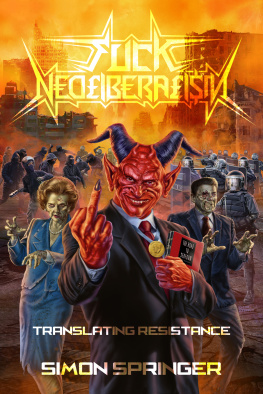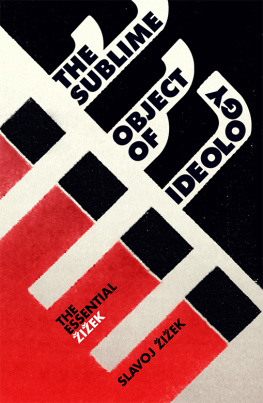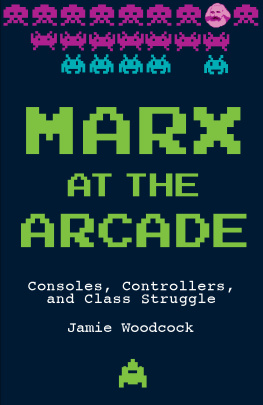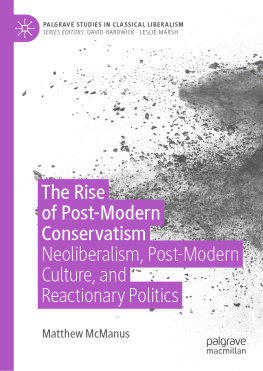Bailes - Ideology and the Virtual City : Videogames, Power Fantasies And Neoliberalism.
Here you can read online Bailes - Ideology and the Virtual City : Videogames, Power Fantasies And Neoliberalism. full text of the book (entire story) in english for free. Download pdf and epub, get meaning, cover and reviews about this ebook. City: Lanham, year: 2019, publisher: John Hunt Publishing, genre: Politics. Description of the work, (preface) as well as reviews are available. Best literature library LitArk.com created for fans of good reading and offers a wide selection of genres:
Romance novel
Science fiction
Adventure
Detective
Science
History
Home and family
Prose
Art
Politics
Computer
Non-fiction
Religion
Business
Children
Humor
Choose a favorite category and find really read worthwhile books. Enjoy immersion in the world of imagination, feel the emotions of the characters or learn something new for yourself, make an fascinating discovery.

Ideology and the Virtual City : Videogames, Power Fantasies And Neoliberalism.: summary, description and annotation
We offer to read an annotation, description, summary or preface (depends on what the author of the book "Ideology and the Virtual City : Videogames, Power Fantasies And Neoliberalism." wrote himself). If you haven't found the necessary information about the book — write in the comments, we will try to find it.
Bailes: author's other books
Who wrote Ideology and the Virtual City : Videogames, Power Fantasies And Neoliberalism.? Find out the surname, the name of the author of the book and a list of all author's works by series.
Ideology and the Virtual City : Videogames, Power Fantasies And Neoliberalism. — read online for free the complete book (whole text) full work
Below is the text of the book, divided by pages. System saving the place of the last page read, allows you to conveniently read the book "Ideology and the Virtual City : Videogames, Power Fantasies And Neoliberalism." online for free, without having to search again every time where you left off. Put a bookmark, and you can go to the page where you finished reading at any time.
Font size:
Interval:
Bookmark:
Videogames are gradually recognized as a new cultural form which reaches far beyond mere entertainment: they enact new forms of subjectivity and temporality. However, this fascination with the new form should not render us blind for the fact that, in their content, even at its most magic, videogames are firmly rooted in our neoliberal capitalism and faithfully mirror its antinomies. This is where Bailess book enters. Through a detailed analysis of selected games, from Grand Theft Auto to Persona, he demonstrates how they reproduce the key dimensions of a modern megalopolis: the City as Playground, as Battleground, as Wasteland, as Prison Ideology and the Virtual City is not only insanely readable; in its combination of vivid descriptions with theoretical stringency, it provides an unsurpassable introduction into the deadlocks of our real life. In short, an instant classic for everyone who wants to understand not just games but our reality itself.
Slavoj iek
Videogames are the battle ground on which the culture wars are fought, and the space of gaming is shaping the political present and future, whether we like it or not. In this insighful and politically vital intervention, Jon Bailes reads the contemporary city through its representation in videogames and considers how city space itself is tranformed by games. Bailes shows how the city and the virtual world can hardly be separated, making a case for a critical-theoretical engagement with games which makes their politics, importance and limitations visible. A timely and important book on a topic so easily and so often misunderstood, setting the terms for future discussions of gaming.
Alfie Bown, author of The Playstation Dreamworld
Ideology and the Virtual City
Videogames, Power Fantasies and Neoliberalism

First published by Zero Books, 2019
Zero Books is an imprint of John Hunt Publishing Ltd., No. 3 East St., Alresford, Hampshire SO24 9EE, UK
office@jhpbooks.com
www.johnhuntpublishing.com
www.zero-books.net
For distributor details and how to order please visit the Ordering section on our website.
Text copyright: Jon Bailes 2018
ISBN: 978 1 78904 164 4
978 1 78904 165 1 (ebook)
Library of Congress Control Number: 2018947800
All rights reserved. Except for brief quotations in critical articles or reviews, no part of this book may be reproduced in any manner without prior written permission from the publishers.
The rights of Jon Bailes as author have been asserted in accordance with the Copyright, Designs and Patents Act 1988.
A CIP catalogue record for this book is available from the British Library.
Design: Stuart Davies
UK: Printed and bound by CPI Group (UK) Ltd, Croydon, CR0 4YY
US: Printed and bound by Thomson-Shore, 7300 West Joy Road, Dexter, MI 48130
We operate a distinctive and ethical publishing philosophy in all areas of our business, from our global network of authors to production and worldwide distribution.
For Cihan
Introduction
In the final moments of the videogame Persona 5, one of its teenage characters, Ryuji Sakamoto, comes to the conclusion that, If you want to change the world, all you have to do is just look at it differently. Indeed, by this point in the game the world has changed, primarily due to the efforts of the group of young rebels to which Ryuji belongs, with their ability to enter an alternate dimension formed from unconscious cognition to alter peoples innermost desires. But even in more everyday circumstances, without such supernatural power, there is something relevant about Ryujis sentiment, in that the first step to any social change is recognizing how certain assumptions underpinning our behavioural and ideological norms are contradictory or counterproductive. If we cannot shift our perspective towards an alternative view, we simply wont challenge these assumptions, and things stay as they are. If that seems obvious, what is less so is what it really means to look at the world differently, because some ideas are so heavily entrenched in cultural processes and institutional structures it may never occur to us that they are matters of perspective at all. Even major disruptive events, such as economic crises, wars and natural disasters, may fail to shake the received wisdoms that connect much of society. In fact, despite Ryujis observation, this problem of perspective also applies to him and his friends, who ultimately havent changed the world as much as they think because they didnt consider the deeper causes behind the social issues they resolved.
This book is about some of the deeply entrenched ideas in modern societies, and how they may make it more difficult to properly confront widespread social problems such as poverty, oppression and environmental decline. It is also about videogames, and how they function as modern cultural expressions that represent different responses to and interpretations of those ideas. So what are these ideas? To begin with their form, or how they take shape and become part of our lives, I am in a sense talking about dominant ideology, yet not exactly a clear philosophy or set of political aims consciously propagated by an elite class (although that is one aspect), so much as a diffuse atmosphere that intertwines with everyday processes. In many ways it is the common sense that tells us what is expected of us and what should make us happy in modern societies, in areas such as work, leisure, health, property ownership and human relationships. It is not a command that we must obey directly or completely, but a set of unwritten guidelines in the background of social life, which we may internalize in different ways, depending on our particular personalities and circumstances.
As for content, it is difficult to give this background a definite name because it is often reproduced without ideological intent, by people simply following the routines of their daily practices. It also varies from one society to the next and within societies themselves, depending on the identities and cultural experiences of the groups that comprise them. Even so, to a great extent we can see this background as an effect of a particular economic reality that exists today with a level of consistency across the globe, in terms of the expectations it places on people in both the wealthier and poorer parts of the world. To this degree, the background which connects us all and which we all respond to psychologically, whether in support or criticism, is capitalism, and specifically the modern form of capitalism that can be loosely called neoliberalism, whose notions of value have colonized our existence. Put another way, it is under the economic and political neoliberal orthodoxy of the 1980s onwards that a logic of competition, instrumentalism and unimpeachable market sovereignty has been gradually normalized throughout social life. This logic reinforces pre-existing notions about the necessity of wage labour and consumerist ideals of personal fulfilment. Yet it also tells us that, regardless of the social problems that remain, this is as fair as society will ever get, and it is up to us as individuals to realize the opportunities for success and satisfaction it provides.
Certainly, neoliberalism is not the only determinant of the common sense background ideology in modern societies, not least due to a continuing patriarchy that is also often deeply embedded in everyday assumptions and behavioural norms (and evident in the games examined in this book). But neoliberal conceptions are central to our daily decision processes, not to mention our understanding of what is politically and economically possible. Thus, even when people arent happy, and want their lives or their societies to change, the neoliberal background still tends to frame the scope of their critical imagination. Seen through its lens of common sense, it is not neoliberal capitalism itself that is the problem, but the government for being too bureaucratic, or certain groups of people for demanding too much, or ourselves for not working hard enough to realize our potentials. And then, even where capitalism or neoliberalism clearly are the problem, the logic tells us that there is no better alternative anyway. But what if we reframe the way we view social problems by looking at the demands of neoliberalism themselves? What if the particular pressures we experience to advance our careers, enjoy ourselves with consumer entertainment, accumulate property and construct an idyllic family life are the
Font size:
Interval:
Bookmark:
Similar books «Ideology and the Virtual City : Videogames, Power Fantasies And Neoliberalism.»
Look at similar books to Ideology and the Virtual City : Videogames, Power Fantasies And Neoliberalism.. We have selected literature similar in name and meaning in the hope of providing readers with more options to find new, interesting, not yet read works.
Discussion, reviews of the book Ideology and the Virtual City : Videogames, Power Fantasies And Neoliberalism. and just readers' own opinions. Leave your comments, write what you think about the work, its meaning or the main characters. Specify what exactly you liked and what you didn't like, and why you think so.








